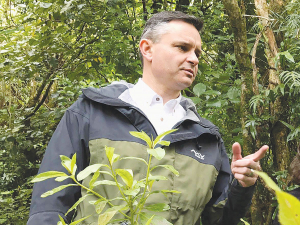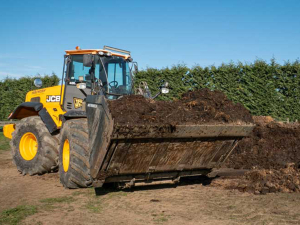Today we begin the task of amending the Climate Change Response Act [2002], to fulfil the commitment we have made as a country to limit global warming to no more than 1.5 degrees Celsius above pre-industrial levels.
Together with the rest of the world New Zealand faces unprecedented challenges from the effects of a changing climate. It will be ongoing and at times, unyielding.
In Aotearoa New Zealand, it may be punctuated by more severe flooding and drought, coastal erosion and storm surges than we have ever seen before.
Globally, climate change will increase existing risks, including the spread of pests and disease, threats to food security and social disruption.
These hazards will impact whole communities, severely strain critical public infrastructure and result in unprecedented social, ecological and economic losses.
When these crises occur – flooding in Whanganui, fires in Tasman, coastal washout in Greymouth, storm damage in Coromandel, droughts in Northland – we declare an emergency and we marshal the resources to respond.
It is not alarmism to suggest that climate change is itself an emergency. It is the causal force driving up the frequency and severity of each of these other crises.
We ought to call it what it is. We cannot say we did not know, or that we were not told. The world is on fire.
The climate emergency we are now facing will change the way we live. Where we live. How we travel and how we work, how we raise our children.
Our response, outlined in this Bill, needs to be appropriate to the scale of the challenge.
The Bill has as its purpose to provide a framework by which NZ can contribute to the collective global effort to limit the increase in global average temperatures to 1.5 degrees Celsius above pre-industrial levels, as set out in Article 2 of the Paris Agreement, thereby significantly reducing the impacts and risks of climate change.
As far as we are aware we are the first country to locate that commitment -- to hold global warming to no more than 1.5 °C -- in primary legislation. This ensures that, whatever else we choose to do, it must further that critical outcome. Nothing we do should undermine it.
This Bill will establish a climate change commission, an independent Crown entity to provide expert advice on the transition to a low‑emissions and climate resilient NZ. This Bill outlines an emissions reduction target for NZ in line with keeping global warming to under 1.5 degrees.
The target has two components:
It will seek to reduce our emissions of all greenhouse gases, except biogenic methane, to net zero by 2050.
It will also seek to reduce our gross emissions of biogenic methane within the range of 24-47% below 2017 levels by 2050, and will include an interim requirement to reduce gross emissions of biogenic methane by 10% below 2017 levels by 2030.
Emissions budgets will act as stepping stones towards the long-term target.
Each budget will state the quantity of emissions that will be permitted in a five-year period and will be supported by a plan to achieve those reductions.
Taken together, successive emissions budgets should define an optimal pathway towards our long-term climate objectives.
Finally, this Bill will require the Government to have a plan for how we adapt to the effects of climate change.
The commission will conduct a national climate change risk assessment every six years and, in response to each risk assessment, the Bill requires the responsible minister to produce a national adaptation plan.
The Bill also gives the Government power to require appropriate organisations to report information for inclusion in the national climate change risk assessments.
Critique of the Bill
Since I introduced the Bill to the House a number of concerns have been raised about the Bill at hui and workshops, and in the media:
First, should there be a limit on the extent to which the Bill permeates across the Government. Should it instead be able to affect the interpretation of other statutes as happens with our human rights and privacy legislation?
Second, should the level of legal liability be proscribed or should the Bill be silent on this, allowing common law norms to develop as public expectations evolve?
Third, should the commission be advisory only, or should it have some level of decisionmaking powers as some have suggested?
Fourth, are the proposed emissions reduction targets too ambitious or too conservative given our commitment to stay within 1.5 degrees Celsius of global warming?
Fifth, should the Bill exclude international aviation and shipping as currently proposed for consistency with the Paris Agreement or should we bring them within our domestic framework as has been done in France and as is being considered by the UK?
Finally, does the Bill adequately address the Crown’s duties under Te Tiriti o Waitangi, to protect land and water and to consult and engage with iwi/Maori?
The feedback I have received so far suggests that these issues warrant thorough consideration by the select committee, although I have to say that the Bill reflects nearly 18 months of consultation and negotiations between political parties and with farming leaders, environmental NGOs, businesses and iwi/Maori organisations.
So I wish the select committee the very best of luck.
The environment parliamentary select committee is now considering the bill and will report back by October 21.











